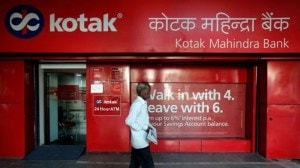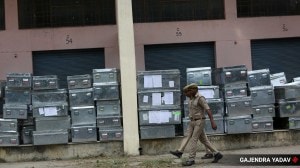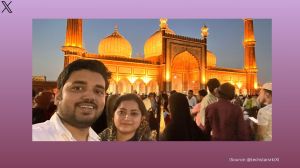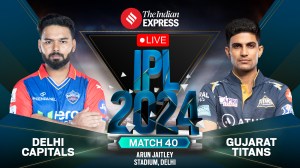- India
- International
This election was about past record of Modi government and expected performance
The stage has been well and truly set for the next generation of economic reforms. There is no going bacK and the people believe Modi and trust Modi to deliver. That is why this election was about the delivery, and promise, of the Modi government.
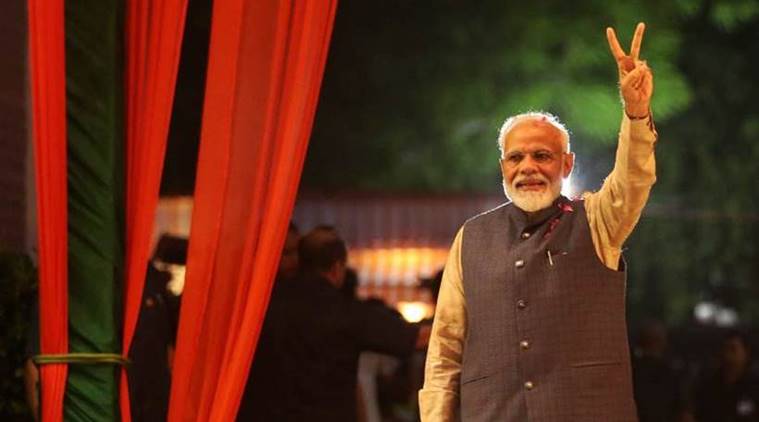 On the history side, the refrain from most analysts has been that caste matters, that people caste their vote. (Express Photo)
On the history side, the refrain from most analysts has been that caste matters, that people caste their vote. (Express Photo)
What was Earthquake Modi all about? I know that there are several descriptions (wave, tsunami, Black Swan, Rashomon, 2.0, etc) but I prefer earthquake for the following important reason — the foundations of what we think the democratic vote is all about has been shaken, stirred, and perhaps dispensed with. And only an earthquake can do that.
There will be time again to discuss what we think the objectives, and policies, of the new Narendra Modi government should be. Today, I want to discuss what history, and economics, tells us about what this vote was all about — and what not. I believe that history has a lot to teach us — the only problem is that often, historians let ideology structure their interpretation of reality, that is, they suffer from the Rashomon effect, a subject I talked about in one of my earlier articles. How best to avoid Rashomon? By filtering ideology with data reality checks.
On the history side, the refrain from most analysts has been that caste matters, that people caste their vote. On May 23, my co-panellists on CNN News18 had a semi-heated discussion (normally we are restrained but an earthquake does get emotions high) on whether caste mattered in this election. I repeated what I have said numerous times, and also discussed in detail in my book Citizen Raj. (It contains a good and possibly prescient forecast about the determinants of Earthquake Modi).
Briefly, my argument is not that caste does not matter — of course it is one of the factors determining your vote. But it does not allow me to forecast or analyse what, why, and who you will vote for in any meaningful way. If it did, and given that caste composition is known, and constant like the North Star, then everybody will be able to call all elections perfectly.
But I have repeated myself enough. I want to quote an email that Anil Maheswari (author and journalist) wrote to me on April 20: “In 1971 caste permutations and combinations were shattered in the wake… of Mrs Gandhi’s clarion call Garibi Hatao; in 1977, it was again demolished in the wake of anger against Mrs. Gandhi; in 1984, it was the phoenix of Majority communalism in the wake of the assassination of Mrs Gandhi; then in 2014 in the wake of Modi’s aspirational call, and now in 2019, it is poised to be shattered again in the wake of developmental activities during the Modi regime” (emphasis added).

Let us settle, the contributions of historians and sociologists notwithstanding, that Indian elections are not about caste. Neither in 2014 (split opposition) nor in 2019 (joint opposition in the important caste states of Haryana, Bihar and UP) did caste matter much for winning. Indeed, one prominent caste leader, Lalu Prasad, did not win a single seat in 2019 after winning four in 2014.
Was this election about Modi? Of course it was, but we need to get beyond that description (similar to that people vote their caste). What was it about Modi that people voted for him in such large numbers? And in even larger numbers than the record-breaking 2014 election. Recall that many “experts” wrote off the 2014 election as a minority 31 per cent vote election. In 2014, the BJP fought only 424 of 543 constituencies. If the BJP had fought all, this translates into 40 per cent of the national vote share; incidentally, the NDA in 2014 garnered 39 per cent of the vote. In the six elections between 1952 and 1980 (excluding 1977) the Nehru-Indira Gandhi Congress obtained an average vote share of 44 per cent.
In the first election in 1952, Jawaharlal Nehru obtained 45 per cent of the vote; the next election, 47.8 per cent. In his first national election, Modi obtained 31 per cent of the vote; in 2019, the figure is close to 38 per cent — an increase of 7 percentage points. The NDA as a whole is likely to average above the Nehru-Gandhi benchmark of 44 per cent. Hence, the nutting nawabs of negativism (with due apologies to William Safire) should stop carping about Modi’s victories not being a reflection of liberal (in the true sense of the word) democratic forces.
This election was about economic reforms, and primarily the economic hope for the future. A favourite complaint of the Modi detractors (and several very good friends of mine) is that Modi erred in not implementing economic reforms like privatisation and in implementing negative reforms like demonetisation. Indeed, demonetisation and its perceived ills was a favourite slogan of the Congress. What I have shouted hoarse for the last nearly three years (and been pilloried even by objective commentators) is that demonetisation was an integral part of Modi’s economic agenda against corruption and tax evasion. It did not succeed perfectly and instantly — what does? But it, along with other reforms like Jan Dhan bank accounts, was necessary to provide direct benefit transfers to the poor (PM-Kisan, health insurance, etc), to provide public services like sanitation (toilets), LPG cylinders, and free housing to the bottom 50 to 70 per cent of the population. Not everyone got the benefits but the eligible beneficiaries believed in Modi’s promise that all those eligible will eventually receive the benefits.
Add to these reforms (imperfect but well-begun and well-intentioned) GST and the bankruptcy code, and initial attempts to reform agriculture, and you have achieved more inclusive economic reforms than any other regime in Indian history. The stage has been well and truly set for the next generation of economic reforms. There is no going bacK and the people believe Modi and trust Modi to deliver. That is why this election was about the delivery, and promise, of the Modi government.
This article first appeared in the print edition on May 25, 2019 under the title ‘Earthquake Modi’. Bhalla is contributing editor, The Indian Express and consultant, Network 18. Views are personal.
EXPRESS OPINION
More Explained
Apr 24: Latest News
- 01
- 02
- 03
- 04
- 05




















